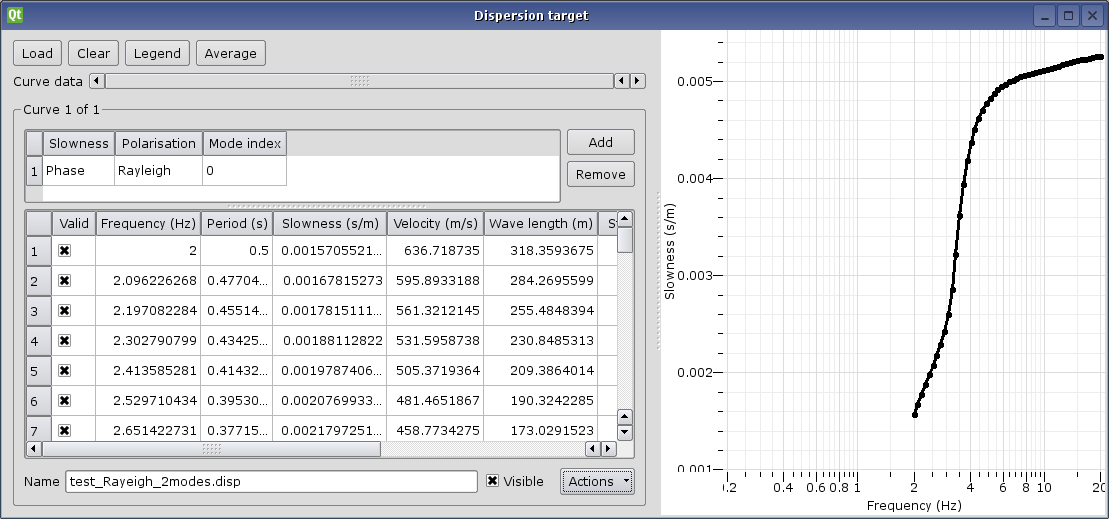Difference between revisions of "Dispersion curve inversion"
| Line 18: | Line 18: | ||
Load a dispersion curve and fix its frequency sampling: | Load a dispersion curve and fix its frequency sampling: | ||
| − | * Load this [[ | + | * Load this [[Media:Test_Rayeigh_2modes.disp|dispersion curve]]. It is a theoretical curve computed using this [[Computing a theoretical dispersion curve|tutorial]]. |
* Select the fundamental curve (use [[Dispersion curve target#Browsing curves|these tips]] to identify it). | * Select the fundamental curve (use [[Dispersion curve target#Browsing curves|these tips]] to identify it). | ||
* Re-sample it from 2 to 20 Hz on log scale (menu '''Actions/Resample'''). | * Re-sample it from 2 to 20 Hz on log scale (menu '''Actions/Resample'''). | ||
Revision as of 10:05, 24 July 2009
This tutorial shows how to invert a dispersion curve measured for surface waves. It is based on dinverdc module used inside dinver framework.
Contents
Getting ready
Start Dinver with Surface Wave Inversion module.
At first glance, the interface might look a little bit messy. If it is the first time you start dinver, you'd better close all windows until having an empty workspace. The various tools will be displayed one by one and explained in this tutorial, in a logical order.
Importing the dispersion curve to fit
- Activate the Target panel in menu Tools.
- Select the Dispersion option. Leave the Misfit weigth and the Min. misfit to their default values, 1 and 0, respectively.
- Click on Set to load the dispersion curve, the Dispersion curve target is displayed.
Load a dispersion curve and fix its frequency sampling:
- Load this dispersion curve. It is a theoretical curve computed using this tutorial.
- Select the fundamental curve (use these tips to identify it).
- Re-sample it from 2 to 20 Hz on log scale (menu Actions/Resample).
- Cut it from 2 to 20 Hz (menu Actions/Cut).
- Select the first higher mode curve (use these tips to identify it).
- Remove it (menu Actions/Remove).
Achieving a good frequency sampling is an art, for a better understanding see Curve sampling.
At this step, the Dispersion curve target should contain only one curve, the fundamental mode. Make sure the mode table contains only one item like this:
